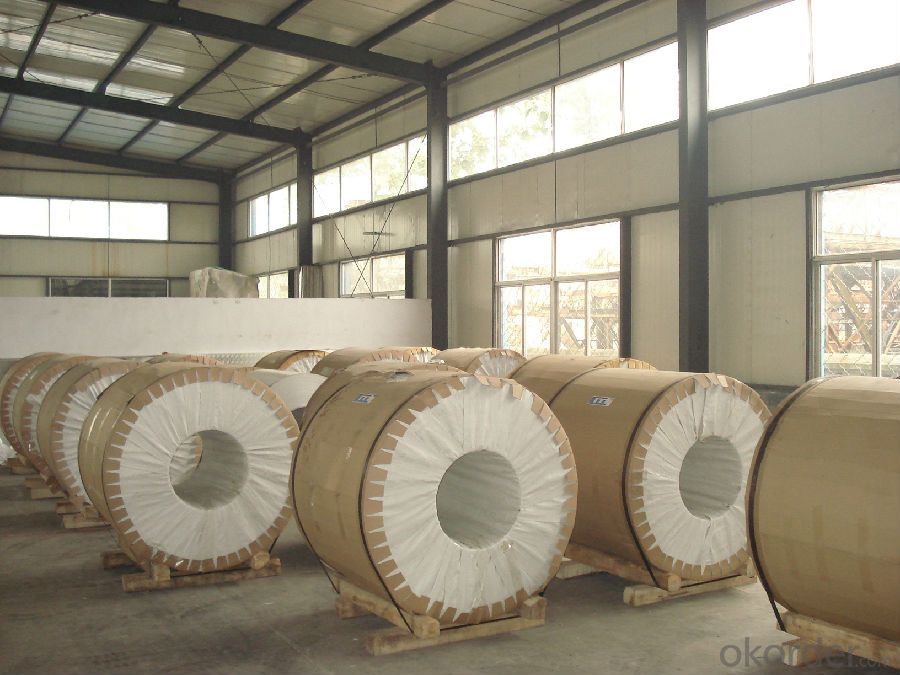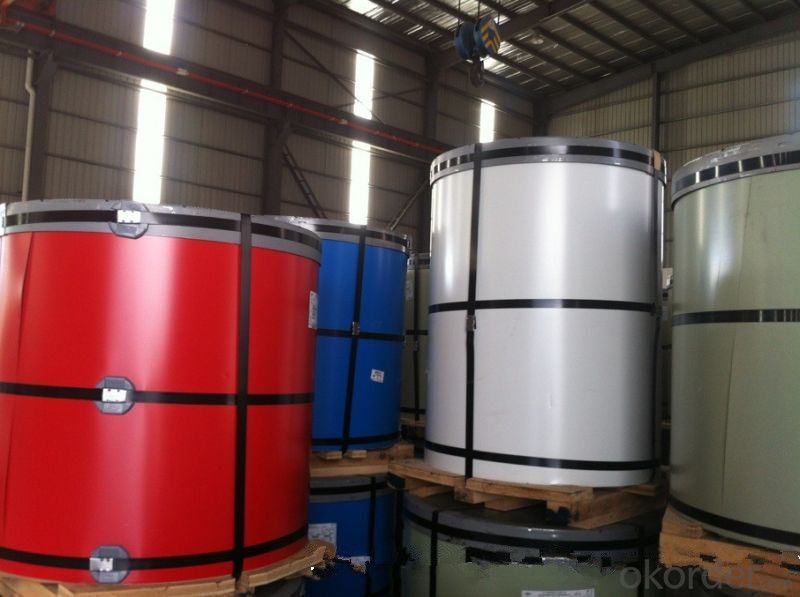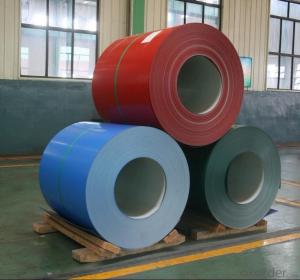Color Coated Aluminium Roll For Automobile Parts
- Loading Port:
- Shanghai
- Payment Terms:
- TT OR LC
- Min Order Qty:
- 5 m.t.
- Supply Capability:
- 60000 m.t./month
OKorder Service Pledge
OKorder Financial Service
You Might Also Like
Item specifice
Color Coated Aluminium Roll For Automobile Parts
Specifications
Grade | 1050,1060,1070, 1100, 1200, 2024,3003, 3004,3005, 3105, 5005,5052 5182,5754,8011 etc |
Thickness | 0.1~1.5mm |
Width | 100~2500mm |
Surface Treatment | PVDF and PE coated |
Temper | O-H112 |
Hardness | More than 2H |
Yield(≥MPa) | 160 |
Ultimate Strength(≥MPa) | 175 |
Elongation(≥%) | 6 |
Packing Material | Moisture-proof agent, steel tape bundle, wooden pallet, brown paper |
Method | Vertical(eye to sky) or horizontal(eye to wall) |
Standard Specification | 1000mm×C, 1200mm×C, etc |
Shipping | Container Loading or Bulk Pack |
Characteristics
1) Excellent weather-proof durability
2) Anti-ultraviolet
3) High erosion resistance
4) Stable color and gloss
5) Good mechanical processing performance
6) Abrasion resistance
7) Anti-impact
8) High flexibility
Application
1) Construction material further processing
2) Solar cell frame, solar battery frame
3) Glass curtain wall frame
4) Interior decoration
5) Elevator decoration
6) Signs, nameplate, bags making.
7) Automobile parts material
8) Office and Household appliances: HVAC equipments
9) The consumer electronics: mobile phones, digital cameras, MP3 .etc.
Coating varieties
Polyester Coatings (PE)
PE (polyester) coatings exhibit an excellent combination of hardness, flexibility, flow, appearance, and superior resistance to dirt retention in indoor and outdoor applications. These coatings are highly resistant to abrasion, metal marking, staining, and marring, and require minimal maintenance. Glazetech uses polyester paints which provide excellent colour and gloss retention properties.
Polyvinylidene Fluoride Coatings (PVDF)
PVDF (polyvinylidene fluoride) is a chemical resistant thick film barrier coating commonly used in architectural applications where both excellent appearance and substrate protection must be maintained over a long period of time. This coating is unaffected by most chemicals and solvents and has excellent wear and abrasion resistance. PVDF also has a high dielectric strength, excellent resistance to weathering and the ability to self extinguish.


- Q:What is the maximum temperature that aluminum coils can withstand?
- The maximum temperature that aluminum coils can typically withstand is around 400-500 degrees Celsius (750-930 degrees Fahrenheit).
- Q:the ingredient on the back says aluminum?also ..what is sodium benzoate?Is all this stuff that terrible for you? Or does it mean something else?
- The aluminum is in the baking powder. Very common but you can buy it without it, it is much healthier for you. Aluminum is correlated to Alzheimer's and ADD. Baked goods taste much better without the aluminum too. Benzoate of soda, a preservative that can alter your DNA. Not too good for you, no matter what the FDA may say about it. All told, if you are concerned for your health, keep to organic as much as possible and made from scratch too. Way too much junk is put in our food and health products.
- Q:Can aluminum coils be used in aerospace heat exchangers?
- Aerospace heat exchangers can indeed utilize aluminum coils. In the aerospace industry, aluminum is widely employed due to its lightweight nature and exceptional thermal conductivity. Heat exchangers play a critical role in aerospace systems by transferring heat between different mediums. Aluminum coils effectively conduct heat, making them suitable for aerospace heat exchangers. Moreover, aluminum's resistance to corrosion is essential in the challenging environments encountered in aerospace applications. Additionally, its low density contributes to fuel efficiency by reducing the overall weight of aircraft. Hence, aerospace heat exchangers prefer aluminum coils owing to their outstanding thermal conductivity, lightweight properties, and corrosion resistance.
- Q:How to calculate the weight of strips with the weight of aluminum coil known?
- Thickness*width*length=weight/density, length=weight/(density*thickness*width).Ps: Keep unit the same.
- Q:What are the potential hazards associated with handling aluminum coils?
- There are several potential hazards associated with handling aluminum coils. One of the main hazards is the risk of physical injury. Aluminum coils are often heavy and can cause strain or sprain injuries if they are not lifted or moved properly. Additionally, if the coils are not securely stacked or stored, they can fall and cause injury to workers. Another hazard associated with aluminum coils is the risk of sharp edges. Aluminum coils can have sharp edges or burrs that can cause cuts or lacerations if not handled with care. Workers should wear appropriate gloves and protective clothing to minimize the risk of injury. Another potential hazard is the risk of fire or explosion. Aluminum is highly flammable when in contact with certain substances, such as acids or alkalis. Therefore, it is important to ensure that aluminum coils are stored in a cool and dry place away from any flammable materials. Furthermore, aluminum coils can pose a respiratory hazard. When cutting or manipulating aluminum coils, dust or particles may be released into the air. Breathing in aluminum dust can cause respiratory irritation or even lung damage. Therefore, it is important for workers to wear appropriate respiratory protection when handling aluminum coils. Lastly, aluminum coils can also present a chemical hazard. Some aluminum coils may be coated or treated with chemicals that can be toxic or irritating to the skin and eyes. Workers should be aware of the potential hazards associated with the specific type of aluminum coil they are working with and take appropriate precautions, such as wearing protective clothing and eye protection. Overall, it is important for workers to be aware of the potential hazards associated with handling aluminum coils and to take appropriate safety measures to minimize the risks. Regular training, proper lifting techniques, wearing protective equipment, and storing aluminum coils safely are all important steps in ensuring the safety of workers handling aluminum coils.
- Q:when ferrous sulfate is poured into an aluminium can, holes appear in the can. Why?
- aluminum reacts via a redox reaction with iron(II): 3 Fe2+(aq) + 2 Al(s) --- 3 Fe(s) + 2 Al3+(aq)
- Q:What is the density of aluminum coils?
- The density of aluminum coils can vary depending on their size, shape, and composition. However, the average density of aluminum is around 2.7 grams per cubic centimeter (g/cm³). This means that for every cubic centimeter of aluminum coil, it weighs approximately 2.7 grams. It's important to note that the density can differ slightly based on factors such as impurities or alloying elements, but the average value provides a good estimate for the density of aluminum coils.
- Q:Are aluminum coils suitable for electrical conductors?
- Yes, aluminum coils are suitable for electrical conductors. Aluminum is a widely used material in the electrical industry due to its excellent electrical conductivity. It has around 61% conductivity of copper, which is the most commonly used metal for electrical conductors. Aluminum coils are lightweight, cost-effective, and have good thermal conductivity, making them a popular choice for various electrical applications. However, it is important to note that aluminum has a lower tensile strength compared to copper, so it may require a larger cross-sectional area to achieve the same level of current carrying capacity. Additionally, proper insulation and connectors are necessary to prevent oxidation and ensure efficient electrical conductivity in aluminum coils.
- Q:Are aluminum coils suitable for architectural applications?
- Yes, aluminum coils are commonly used in architectural applications due to their durability, lightweight nature, corrosion resistance, and versatility in design options. They are often used in roofing, siding, facades, and other architectural elements, offering a long-lasting and aesthetically pleasing solution.
- Q:Can the displacement sensor be used for real-time measurement of the aluminum coil thickness?
- You are suggested to use eddy current displacement sensor KD2306 to measure aluminum.
1. Manufacturer Overview |
|
|---|---|
| Location | |
| Year Established | |
| Annual Output Value | |
| Main Markets | |
| Company Certifications | |
2. Manufacturer Certificates |
|
|---|---|
| a) Certification Name | |
| Range | |
| Reference | |
| Validity Period | |
3. Manufacturer Capability |
|
|---|---|
| a)Trade Capacity | |
| Nearest Port | |
| Export Percentage | |
| No.of Employees in Trade Department | |
| Language Spoken: | |
| b)Factory Information | |
| Factory Size: | |
| No. of Production Lines | |
| Contract Manufacturing | |
| Product Price Range | |
Send your message to us
Color Coated Aluminium Roll For Automobile Parts
- Loading Port:
- Shanghai
- Payment Terms:
- TT OR LC
- Min Order Qty:
- 5 m.t.
- Supply Capability:
- 60000 m.t./month
OKorder Service Pledge
OKorder Financial Service
Similar products
New products
Hot products
Related keywords





























